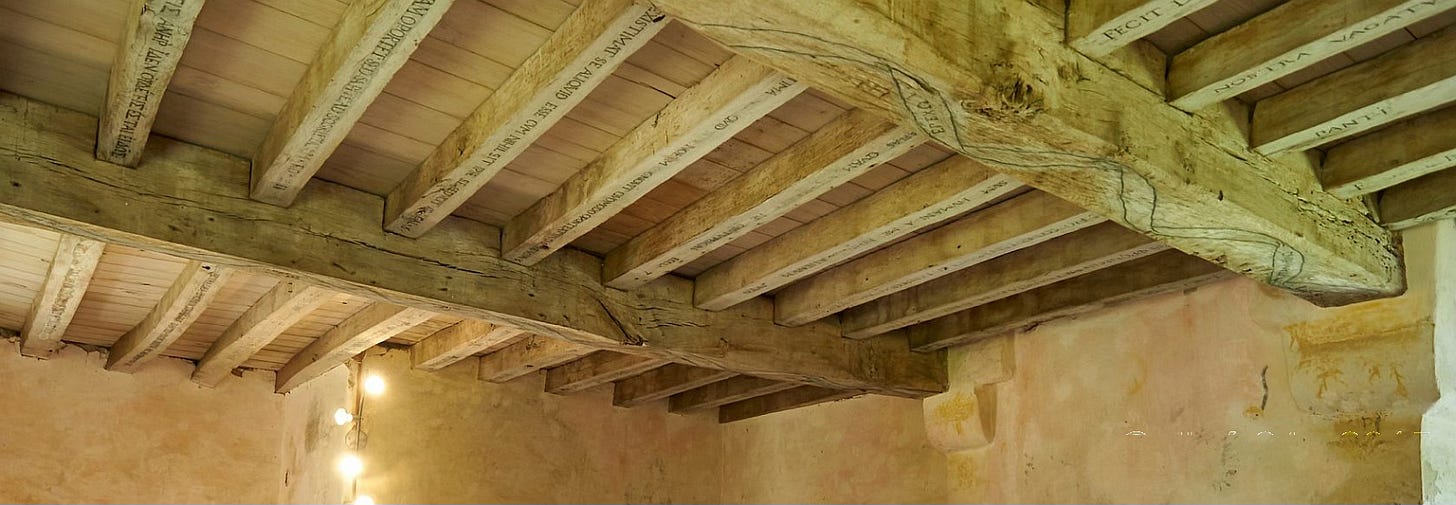Diary: (2) Andrew Hui on the Birth of the Private Library
The Renaissance library was an aperture through which you contemplate the world and a retreat wherein you cultivate the self
Inscriptions from ancient authors and the Bible on the ceiling of the library of Montaigne’s tower. Photo by Jacques Bodin. Creative Commons
Read Part One of this post here!
Renaissance humanists created an intimate healing place of the soul—the studiolo—as a personal library of self-cultivation and self-fashioning. Cocooned within its four walls (or, if you’re Montaigne, a circular tower), the studiolo was an aperture through which you contemplate the world and a retreat wherein you cultivate the self. In order to know the world, one must begin with knowing the self, as ancient philosophy instructs. In order to know the self, one ought to study other selves too, preferably their ideas as recorded in texts. And since interior spaces shape the inward soul, the studiolo—the diminutive of studio in Italian—became a sanctuary and a microcosm. The study thus mediates the world, the word, and the self.
As idea and infrastructure, the studiolo enacts a basic hope of humanism: to reach out and commune with the voices of the past. In an evocative letter written by Machiavelli in 1513, the disgraced writer finds himself fallen from the apex of power. He’s been rusticated to his family villa outside Florence. In the day, he’s bored. He takes walks in the countryside, catches some birds, loiters with the villagers, plays cards at the local tavern. But nothing compares to the thrill of what he does at the end of the day:
When evening has come, I return to my house and go into my study [scrittoio]. At the door I take off my clothes of the day, covered with mud and mire, and I put on my regal and courtly garments; and decently reclothed, I enter the ancient courts of ancient men, where, received by them lovingly, I feed on the food that alone is mine and that I was born for. There I am not ashamed to speak with them and to ask them the reason for their actions; and they in their humanity [umanità] reply to me. And for the space of four hours I feel no boredom, I forget every pain, I do not fear poverty, death does not frighten me. I deliver myself entirely to them.
Keep reading with a 7-day free trial
Subscribe to Book Post to keep reading this post and get 7 days of free access to the full post archives.




